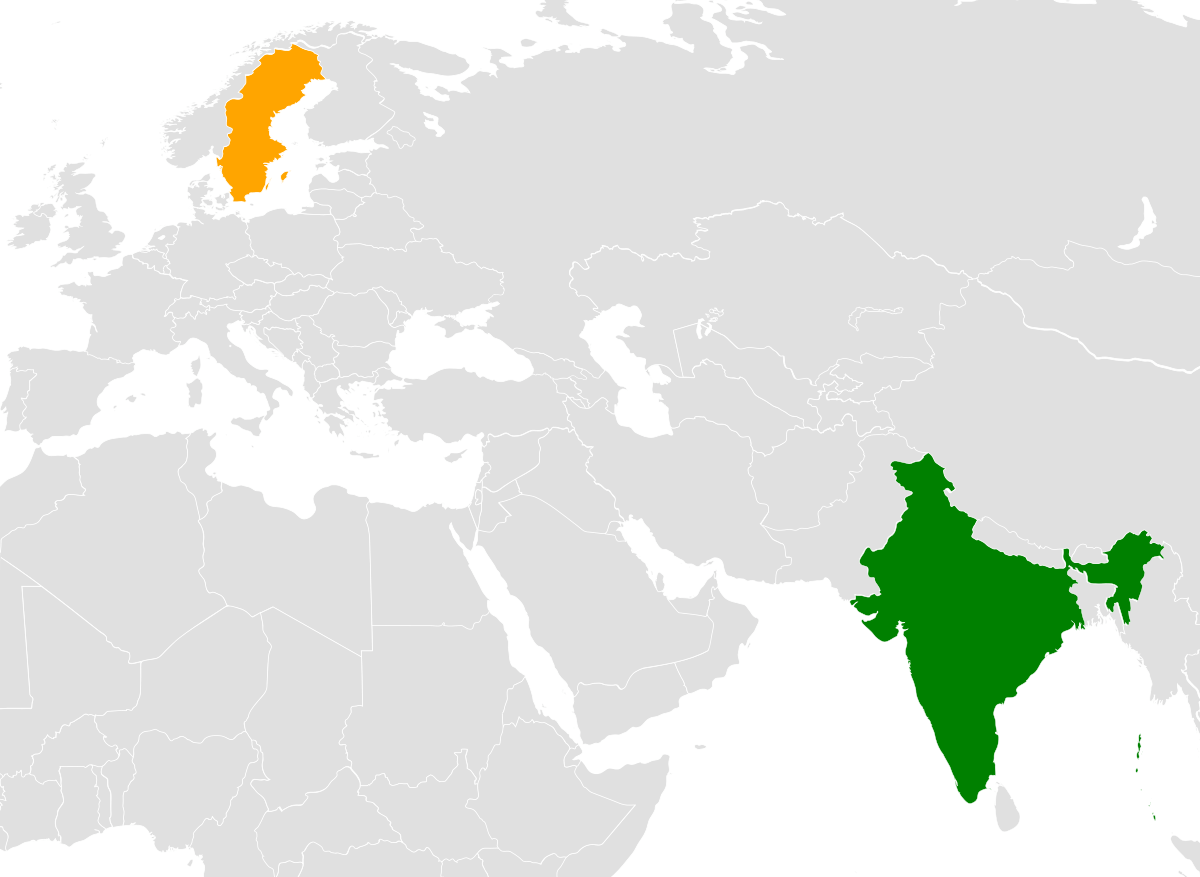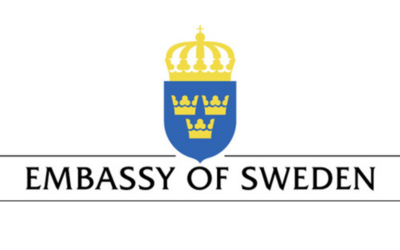Currently, more than 280 Swedish companies have bases in India. Although most Swedish firms began entering the market in and after the 2000s, some had established branches in India even before its independence. For instance, a Sweden-based global telecom giant, LM Ericsson popularly known as Ericsson, supplied manual switchboards for the Indian government since 1903. It was the first company that provided GSM equipment in India. SKF, ASEA (ABB Group), Swedish Match, and Sandvik were among the first Swedish companies to set foot in India.
With the widening scope for business investment in India and frequent bilateral visits from top leaders over the years, the relationship between New Delhi and Stockholm is closer than ever. Today, India stands as Sweden’s third-largest trading partner in Asia after China and Japan.
Over the last decade, India has witnessed a significant rise in Swedish companies coming to India. As explained by the India Business Climate Survey, 2023, about 86% of Swedish companies found India’s business ecosystem encouraging and supportive. Also, several Indian government initiatives to ease the flow of foreign direct investment (FDI) play a crucial role in creating enormous business opportunities for Swedish small & medium businesses (SMBs).
In 2023, India and Sweden marked their 75 years of diplomatic relations and both sides are looking to expand their existing business collaboration and partnership in the coming years. In February 2024, the Swedish Foreign Minister, Tobias Billström addressed over 100 industry executives in India’s biggest technology hub, Bengaluru. The meeting, organized by the Confederation of Indian Industry (CII) and the Embassy of Sweden, underscored Sweden’s commitment to expanding its business footprint in India and highlighted the growing importance of Swedish companies in India.
A Brief History of the Sweden-India Bilateral Relationship
The Sweden-India bilateral relationship dates back to 1949, two years after Indian independence. India and Sweden followed a non-alignment policy during the Cold War, though the latter country was unofficially inclined towards the US-led North Atlantic Treaty Organization (NATO). In the 1990s, the relationship between New Delhi and Stockholm turned sour due to the Bofors-India Howitzer deal, commonly known as the Bofors scandal. With the bilateral ties improved substantially in the 2000s, both countries witnessed frequent visits from top leaders.

Such events opened various hidden doors for economic cooperation and business opportunities for both countries. One major turning point event in the Sweden-India relationship was the state visit to India by King Carl XVI Gustaf in 2005, by leading a team of technology delegations.
It was the third royal visit to India when Swedish King Gustaf and Queen Silvia met the Indian Prime Minister (PM) Narendra Modi for their 5-days state visit in December 2019. The royal visit inaugurated a high-level dialogue on investment and innovation partnership between both countries, focusing on core business fields such as research, digital healthcare, climate change, renewable resources, future mobility, and shipping.
On different occasions, many top leaders of Sweden visited India. The then Swedish PM Fredrik Reinfeldt and his successor Stefan Löfven also visited India to expand the bilateral relationship and promote Swedish-Indian cooperation. Many Joint Action Plans (JAPs) and Joint Working Groups (JWGs) had been concluded to work together on investment opportunities, R&D linkages, and technological transfers during frequent state visits between the two countries.
Business Opportunities for Swedish Companies in India
India’s growth as an investment powerhouse continues to attract global players, and companies entering India in 2024 will find a supportive and dynamic environment. Additionally, The Sweden-India trade relationship has grown significantly over the years. Worth USD 3 billion in 2016, the bilateral trade soared to USD 5.5 billion in 2022. The number of Swedish companies in India has proliferated during this period. One of the key reasons for the rising number of Swedish firms in India is the increasing initiatives of the Indian government to invite foreign investment in the country.
India’s FDI policy mainly aims to increase employment, industry productivity, and infrastructure facilities. Emerging as a major global investment hub, India offers a key investment opportunity for Swedish companies. To ensure an easy flow of foreign investment in the infrastructure sector, the Indian government initiated 100% FDI under the “automatic route” policy. In November 2023, a leading Swedish defense and security company, SAAB became the first foreign company that bagged 100% FDI in India’s defense projects.
Currently, the Swedish business community in India has representatives across sectors like automotive, IT & telecom, retail & e-commerce, healthcare & pharmaceutical, renewable energy, and apparel. To mention a few names Swedish companies operating in India, are Atlas Copco, Astra Zeneca, Volvo Group, Electrolux, IKEA, H&M, SSAB, Autoliv, Spotify, and Truecaller. Many of these companies have manufacturing, distribution, and service centers in India and also have been investing largely in R&D activities as well as marketing & sales.
Considering India’s strong economy and significant growth rate, the Swedish Trade Commissioner in India, Cecilia Oskarsson highlighted several investment opportunities for Swedish investors and businesses. She pointed out the major investment opportunities in Indian sectors, including defense, aviation & space, IT and telecom, education, railways & ports, automotive, healthcare & pharmaceutical, and renewable energy. Several leaders of both countries agree that R&D collaboration, technology exchange, innovation, and investment are the key foundations to strengthen their bilateral business environment.
Availability of Indian Talent for Swedish Companies
India’s abundance of highly skilled resources and comparatively reduced cost of hiring remote professionals are two crucial factors that attract foreign businesses to mark their presence in the Indian market. Also, rapid advancements in technology and infrastructure facilities, such as improved internet connectivity, AI transformation, data center & cloud computing services, and office/logistic facilities further boost the entry of foreign companies into India. Such developments offer key market opportunities for Swedish companies as well.
According to a 2019 report by the Embassy of Sweden, Seven out of 10 Swedish companies in India preferred hiring talents within the area of their business operations. Considering the large size of employable youth in India, the Swedish government has shown interest in skill development programs in India, as part of its commitment to expand business opportunities for Swedish firms.
Also, the report highlighted the significant roles of Indian women professionals in various industries and the need to empower women in various organized jobs. To build a sustainable business ecosystem, Swedish firms are focusing on public-private partnerships and encouraging women’s participation in industries as a vital workforce.
Indian talents represent a key workforce for Swedish start-up collaboration and SMBs by leveraging Swedish technologies and working together on innovative design solutions. The rising R&D opportunities in India play a crucial role in bringing a closer tie between the business communities of New Delhi and Stockholm.
Conclusion
Sweden and India have established a longstanding bilateral relationship to work together towards modern technology, business collaboration and investment, and trade cooperation. The present India-Sweden modern technology cooperation is illustrated by the rising popularity of Spotify and Truecaller.
In 2024, the growth of Swedish companies in India is set to accelerate, driven by a combination of government support, an abundant talent pool, and increasing bilateral cooperation. As India continues to rise as a global investment hub, companies entering India in 2024 can look forward to a thriving business environment, supported by a robust framework for innovation, collaboration, and market expansion.
Also, the geo-political importance of India offers extensive access to neighboring markets such as Sri Lanka Bangladesh, Nepal, Bhutan, Pakistan, and the Maldives. Business expansion in India can be a strategic investment opportunity to access several countries in East Asia as well. The increasing ties between Sweden and India present a reference point for further business collaboration with nomadic countries, including Finland, Norway, and Denmark.
Highlighting the importance of Sweden-India relations, the Swedish Ambassador in India, Jan Thesleff joined the celebrations of 100 years of SKF operation in Pune in 2023. The iconic Swedish company, Ericsson has been in India for more than 120 years.





 Schedule a free call
Schedule a free call